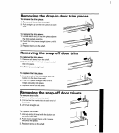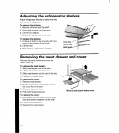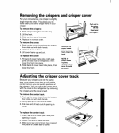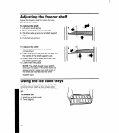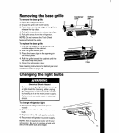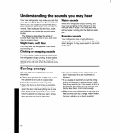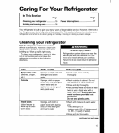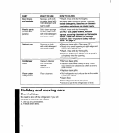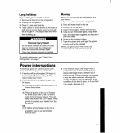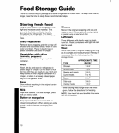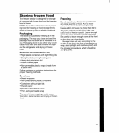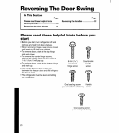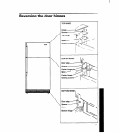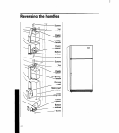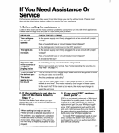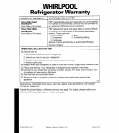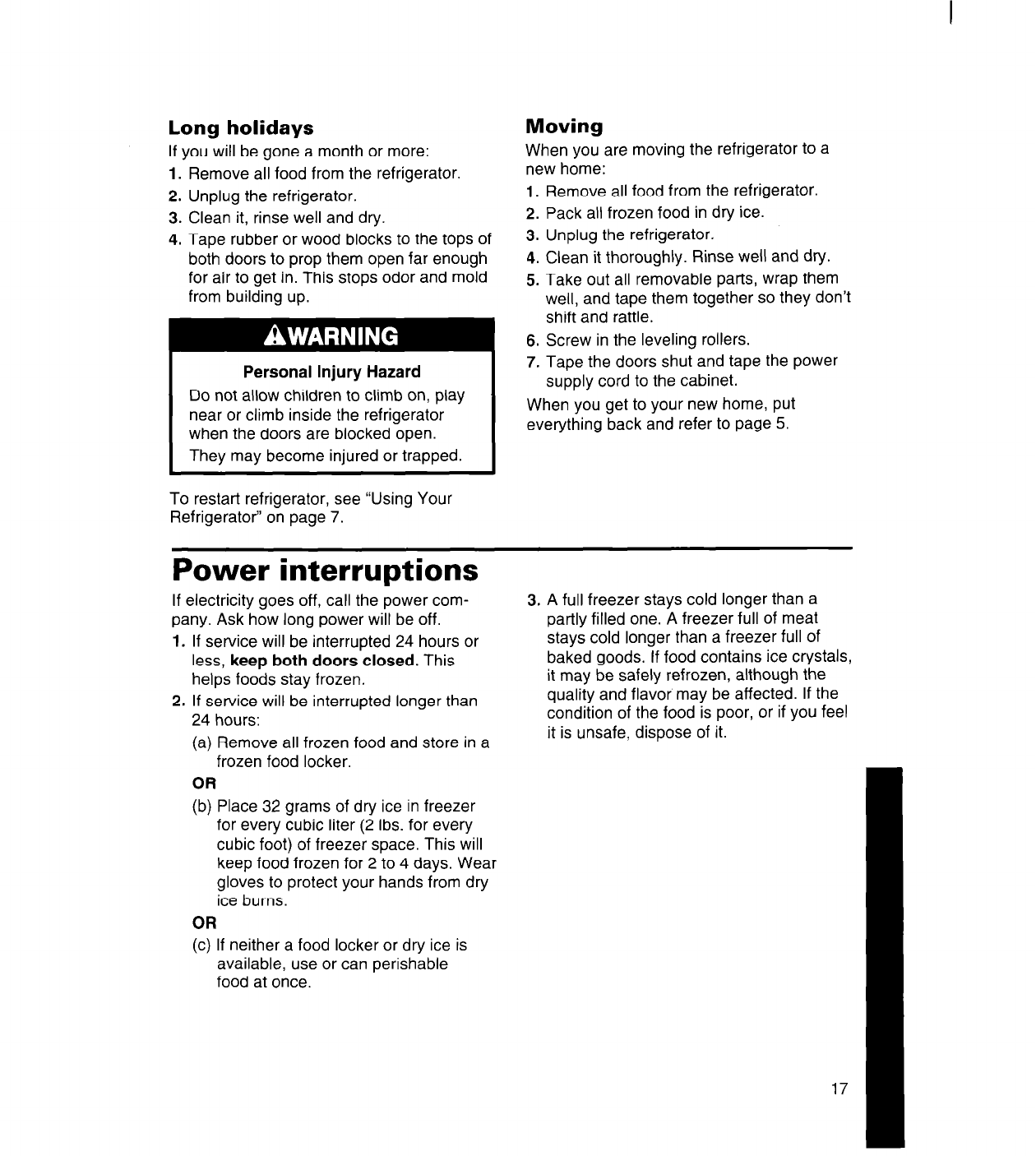
Long holidays
If you will be gone a month or more:
1. Remove all food from the refrigerator.
2. Unplug the refrigerator.
3. Clean it, rinse well and dry.
4. Tape rubber or wood blocks to the tops of
both doors to prop them open far enough
for air to get in. This stops odor and mold
from building up.
Personal Injury Hazard
Do not allow children to climb on, play
near or climb inside the refrigerator
when the doors are blocked open.
They may become injured or trapped.
To restart refrigerator, see “Using Your
Refrigerator” on page 7.
Moving
When you are moving the refrigerator to a
new home:
1. Remove all food from the refrigerator.
2. Pack all frozen food in dry ice.
3. Unplug the refrigerator.
4. Clean it thoroughly. Rinse well and dry.
5. Take out all removable parts, wrap them
well, and tape them together so they don’t
shift and rattle.
6. Screw in the leveling rollers.
7. Tape the doors shut and tape the power
supply cord to the cabinet.
When you get to your new home, put
everything back and refer to page 5.
Power interruptions
If electricity goes off, call the power com-
pany. Ask how long power will be off.
1. If service will be interrupted 24 hours or
less, keep both doors closed. This
helps foods stay frozen.
2. If service will be interrupted longer than
24 hours:
(a) Remove all frozen food and store in a
3. A full freezer stays cold longer than a
partly filled one. A freezer full of meat
stays cold longer than a freezer full of
baked goods. If food contains ice crystals,
it may be safely refrozen, although the
quality and flavor may be affected. If the
condition of the food is poor, or if you feel
it is unsafe, dispose of it.
frozen food locker.
OR
(b) Place 32 grams of dry ice in freezer
for every cubic liter (2 Ibs. for every
cubic foot) of freezer space. This will
keep food frozen for 2 to 4 days. Wear
gloves to protect your hands from dry
ice burns.
OR
(c) If neither a food locker or dry ice is
available, use or can perishable
food at once.



